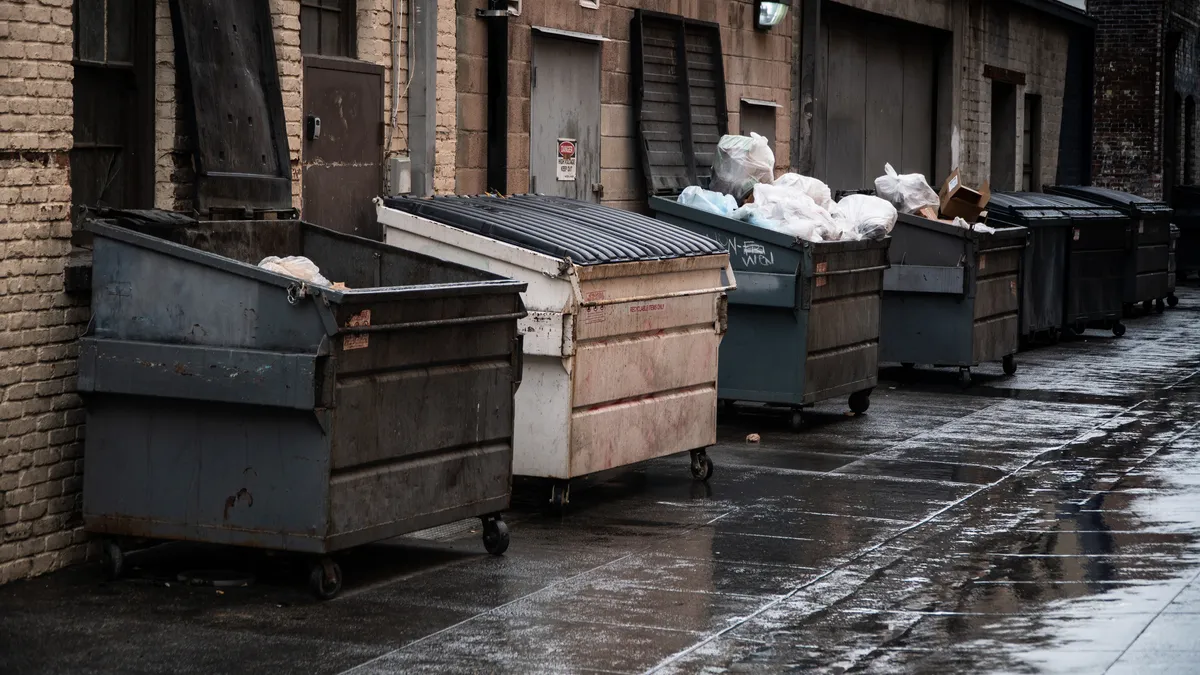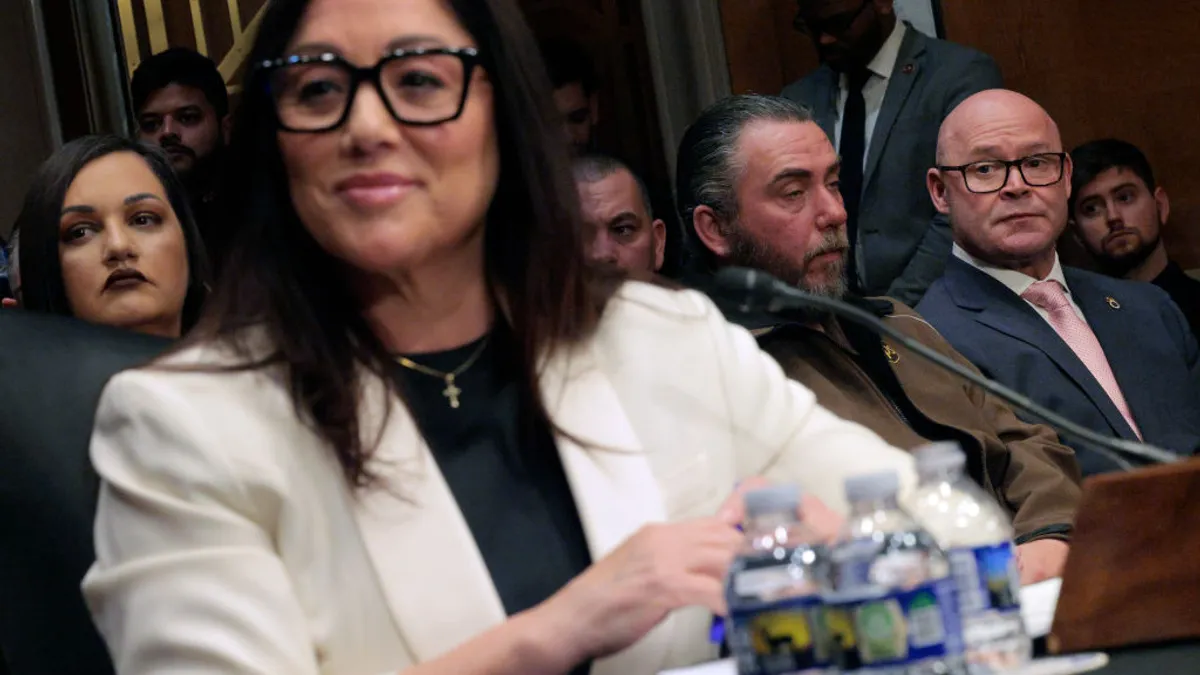When Kristofer Brown was homeless, he collected cans to get by. Today, he manages a container redemption and job training center called The People’s Depot in Portland, Oregon.
Brown, a major advocate for bottle bills, wants to see state container deposit legislation better reflect environmental justice and equity considerations. He was among the consultants on a new report commissioned by the Can Manufacturers Institute that offers recommendations on how to build more inclusive deposit systems.
CMI, a supporter of container deposit system or “recycling refund” legislation, is working to get bottle bill legislation passed in several states, including Illinois and Minnesota.
The report, prepared by consultants from the grassroots group Intersectional Environmentalist, recommends that policymakers and lawmakers advocate for programs that not only provide more convenient and accessible redemption options for all users, but also offer economic opportunities for underserved communities.
“In our work trying to advance recycling refund legislation, we recognized the need for experts in environmental justice and equity communities to contribute to the conversation,” said Scott Breen, CMI’s vice president of sustainability. “These [recommendations] could be brought into active discussions around bill language and suggested to lawmakers, who can then consider whether to include it.”
Designing accessible programs
Intersectional Environmentalist’s report includes numerous recommendations for designing more accessible programs. It recommends offering mobile redemption sites that are easier to access for people with disabilities or people who do not have vehicles, as well as offering more redemption centers in environmental justice areas that include signage in multiple languages and are “staffed by individuals with training to appropriately service culturally diverse and underserved communities.”
The report also encourages bottle return system operators to make space for alternative return sites, which might look different than conventional retail or reverse vending machine options. These might offer additional community services such as health care or food distribution aspects.
It also recommends that policymakers do more to consider the voices of stakeholders from underserved populations, such as by conducting surveys and collecting data from a wider range of participants — including those who are homeless, those who are not registered to vote or those who are undocumented immigrants. Such groups are often underrepresented in bottle bill discussions but are overrepresented in areas considered to be environmental justice communities, the report said.
IE’s report “also highlights the importance of including diverse stakeholders in the recycling industry, particularly those involved in the informal economy,” said Diandra Esparza, IE’s co-founder and executive director.
That includes recyclers known as canners, or informal workers who collect cans and bottles as a source of income. Such collectors can sometimes face stigma due to their economic or mental health situations, Brown said, but they are major drivers of the deposit return system economy in Oregon and other bottle bill states.
Some of the recommendations provided in Intersectional Environmentalists’ report are already reflected in active legislation, Breen said.
Minnesota’s proposed bottle bill, HF 3200, led by Rep. Sydney Jordan and supported by CMI, calls for operating redemption sites in environmental justice communities that include trained staff and signage in multiple languages. It calls for at least five mobile redemption sites to serve a wider range of customers and also calls for an annual survey of customers for whom container redemptions “constitute a significant proportion of their income.”
The bill’s definition of “redemption mechanism” is purposely kept vague, Breen said, which is meant to make space for new redemption return technologies without needing to change the law. “Hopefully some of these new technologies and innovations can better service diverse communities,” Breen said.
A similar bottle bill in Washington, HB 2144, did not pass before the end of the legislative session, but it also acknowledged that numerous people return containers to earn income. It would have paid more for bottles returned by nonprofits that support canners and other low-income residents.
Incorporating equity
Many canners in the Portland area return their containers at the People’s Depot, which in 2023 processed about 7.5 million containers and served 19,676 customers, according to its website. The depot is specifically designed to welcome canners, unhoused people and other underserved customers. It is funded in part from a $265,000 grant from the Oregon Beverage Recycling Cooperative, the distributor-run organization that manages the state’s container return system.
The depot is managed by the Ground Score Association, which offers what it describes as “low barrier jobs and training designed to lead to formal work.” Ground Score members have participated in recycling committees to update Oregon’s bottle bill and to oversee rulemaking for the Recycling Modernization Act, Oregon’s upcoming extended producer responsibility program.
Working at The People’s Depot “has been a very empowering experience because now I get to uplift other people,” said Brown. “Like everyone that I work with, I started with no ID and no way to get traditional employment. Now, we have people working with us who have their IDs, bank accounts, [health insurance] and have gotten into housing or about to get into housing. If you give people the opportunity to work, they'll show up to work and get their lives back on track.”
Depot workers sort containers by hand, which Brown said is necessary to provide low-barrier jobs. Sorters also work quickly enough that more customers can get through the line than at some locations with reverse vending machines, which have wait times or require users to deposit one container at a time, he said.
Brown said the aspects that work well at The People’s Depot won’t always work at more traditional return locations — and that’s OK. States that set aside funding for a few independent, alternative redemption centers can benefit from collecting more containers while improving overall access, he said.
“If you're going to pass a bottle bill, you should allow more people to participate in it and allow that to create jobs and income for multiple classes of people, not just those at the top,” Brown said. “Recycling is a big business, but unfortunately, it is heavily monopolized also.”
Esparza acknowledges that container deposit legislation can be complex, but she sees the IE report as a resource to help policymakers think more broadly about which voices could make such legislation stronger.
Existing container deposit laws “were never designed with the thought that people would engage with them in this way. So it's clearly a sign that something needs to change and shift,” she said.























